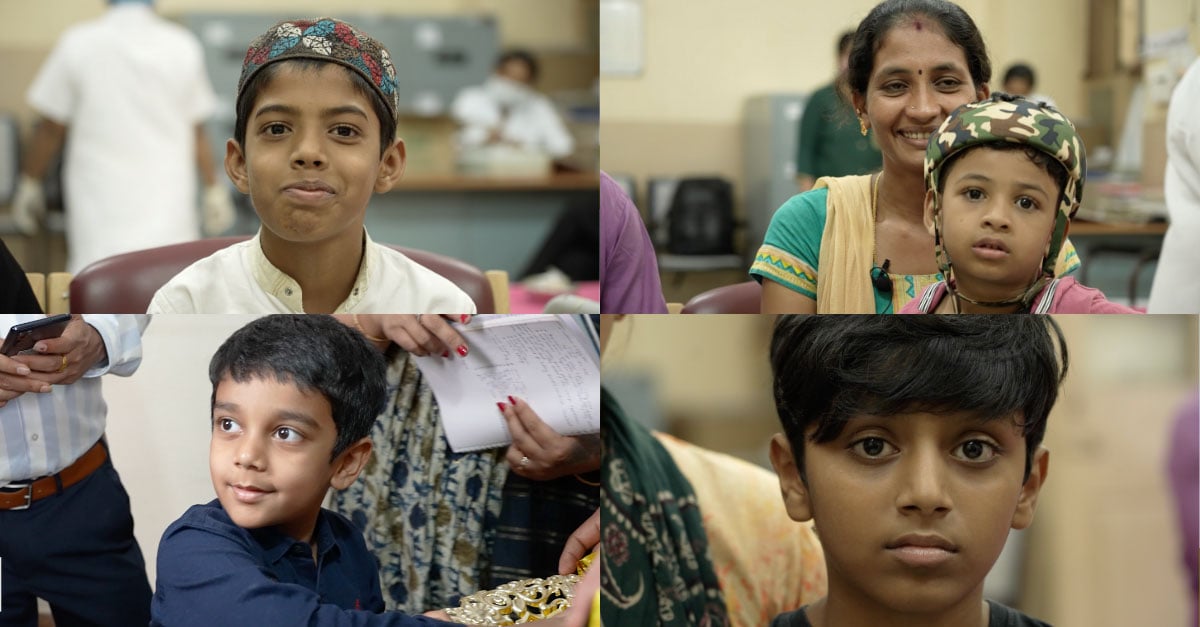The WFH is active in India through the WFH Path to Access to Care and Treatment (PACT) Program, the WFH Twinning Program, the WFH International External Quality Assessment Scheme (IEQAS), and other programs and endeavours, including the WFH Humanitarian Aid Program, which plays a crucial role in the community through education and donated treatment products.
In June 2023, the WFH Humanitarian Aid Program team went to India to see firsthand the progress being made in the country. The goal of the five-day visit was to determine what was working well, and what could be improved—both in the short term, and in the long term.
The visit started with face-to-face talks with people with bleeding disorders (PWBDs) and their families at the Clinical Hematology Department in Bangalore Medical College, Bangalore. The team heard the stories of hardship faced by young people with bleeding disorders. In the not-too-distant past, children in India suffered from acute bleeds, developed joint issues, and missed school. Their parents also suffered because they saw their children in pain—and were unable to help because treatment options were limited or non-existent. Now, the situation has significantly improved, thanks to the work of the WFH, and thanks to WFH Humanitarian Aid Program donations. Today, regular treatment—and even prophylaxis—is the new reality.
Thank you WFH for helping us with [treatment product]. I’m grateful to everyone who supplies the medicine. They’ve saved my son many times.
—Father of a patient in Bangalore
Over the next two days the WFH Humanitarian Aid Program team members held a workshop on hemophilia diagnosis and management, where they shared the latest techniques for diagnosing PWBDs, and for maximizing the use of donated treatment products. On the last day of the visit, they went to St. John’s Medical College Hospital in Bangalore to glean more information from hemophilia treatment centre (HTC) staff to determine how to better support specialists in the future.
Assad Haffar, MD, WFH Director, Medical and Humanitarian Aid felt very positively about the visit. “[The visit] confirmed our thoughts about India. We found that the patients are close to normal thanks to the work of the treaters who are very competent, the work of the WFH, and the Hemophilia Federation of India.” He went on to say that he is very optimistic that the progress that has been made will continue until every PWBD in India has access to adequate treatment. When the country reaches this point, PWBD will be able to go to school with their peers, and work to support their families when they reach adulthood. In other words, they will be able to live a normal life.
Almost 42 million IUs of factor were donated to India through the WFH Humanitarian Aid Program in 2023. Since 2015, over 370 million IUs of factor have been donated to India. To find out more about the WFH Humanitarian Program, please click here.
About the WFH Humanitarian Aid Program
The WFH Humanitarian Aid Program improves the lack of access to care and treatment by providing much-needed support for people with inherited bleeding disorders in developing countries. By providing patients with a more predictable and sustainable flow of humanitarian aid donations, the WFH Humanitarian Aid Program makes it possible for patients to receive consistent and reliable access to treatment and care. None of this would be possible without the generous support of Sanofi and Sobi, our Founding Visionary Contributors; Bayer, CSL Behring and Roche, our Visionary Contributors; Grifols, our Leadership Contributor; and Takeda and Japan Blood Products Organization, our Contributors. To learn more about the WFH Humanitarian Aid Program, visit www.treatmentforall.org.













